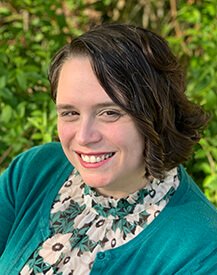Seasonal Science: Spring Activities
Spring is perfect for spending time outdoors and learning more about how plants and animals grow. Whether you live somewhere with lots of green or somewhere where the cars outnumber the trees, getting outside as the weather gets warmer provides great opportunities for little learners.
Spring Science Activities for Preschoolers:
Books About Spring for Preschoolers:
Nonfiction:
Planting Seeds by Erika L. Shores
Rain Showers by Kathryn Clay
Animals in Spring by Kathryn Clay
Up in the Garden Down in the Dirt by Kate Messner
Goodbye Winter, Hello Spring by Kenard Pak
Some Bugs by Angela DiTerlizzi
We Dig Worms by Kevin McClosky
Compost Stew by Mary McKenna Siddals
A Seed is Sleepy by Dianna Hutts Aston
An Egg is Quiet by Dianna Hutts Aston
A Butterfly is Patient by Dianna Hutts Aston
A Nest is Quiet by Dianna Hutts Aston
Fruit is a Suitcase for Seeds by Jean Richards
The Reason for a Flower by Ruth Heller
Planting a Rainbow by Lois Ehlert
Waiting for Wings by Lois Ehlert
The Honeybee by Kirsten Hall
Fiction:
Spring is Here by Will Hillenbrand
Crinkle, Crackle, CRACK It’s Spring by Marion Dane Bauer
Fantastic Flowers by Susan Stockdale
Hank’s Big Day: The Story of Bug by Evan Kuhlman
Cricket in the Thicket by Carol Murray
Errol’s Garden by Gillian Hibbs
Lola Plants a Garden by Anna McQuinn
Sidewalk Flowers by JonArno Lawson
Plant the Tiny Seed by Christie Matheson
Tap the Magic Tree by Christie Matheson
And Then It’s Spring by Julie Fogliano
Pitter and Patter by Martha Sullivan
It’s Raining, It’s Pouring by Kin Eagle
Spring Resources:
National Geographic: Oh Baby! Which Animal Families Lay Eggs and Live Birth?
SciShow Kids: The Science of Spring
Composting Resources:
Backyard Composting: stopwaste.org/
Spring Science Webinar Recording:
Spring Science Presentation
Download the Spring Science webinar presentation here.
Standards & Alignments
 Hollie is certified K-8 teacher who has been educating in the informal education field since 2005. She has developed and implemented countless exciting STEAM programs for families, classrooms, and teachers focused on the natural world, the scientific process, and ancient life. Her professional passions are inquiry, whole family learning, experiential learning starting in early childhood, and the intersection of literacy and science instruction.
Hollie is certified K-8 teacher who has been educating in the informal education field since 2005. She has developed and implemented countless exciting STEAM programs for families, classrooms, and teachers focused on the natural world, the scientific process, and ancient life. Her professional passions are inquiry, whole family learning, experiential learning starting in early childhood, and the intersection of literacy and science instruction.
She has recently developed a community-based program that encourages families to use dramatic play to learn science, increase literacy skills, and have fun together for which she received the Drexel University Presidential Award for Civic Engagement. She is most proud of her work on a popular science storytelling program for preschool families and classrooms that combines a book club format with engaging programs, innovative curriculum, and a hysterical puppet storyteller.
